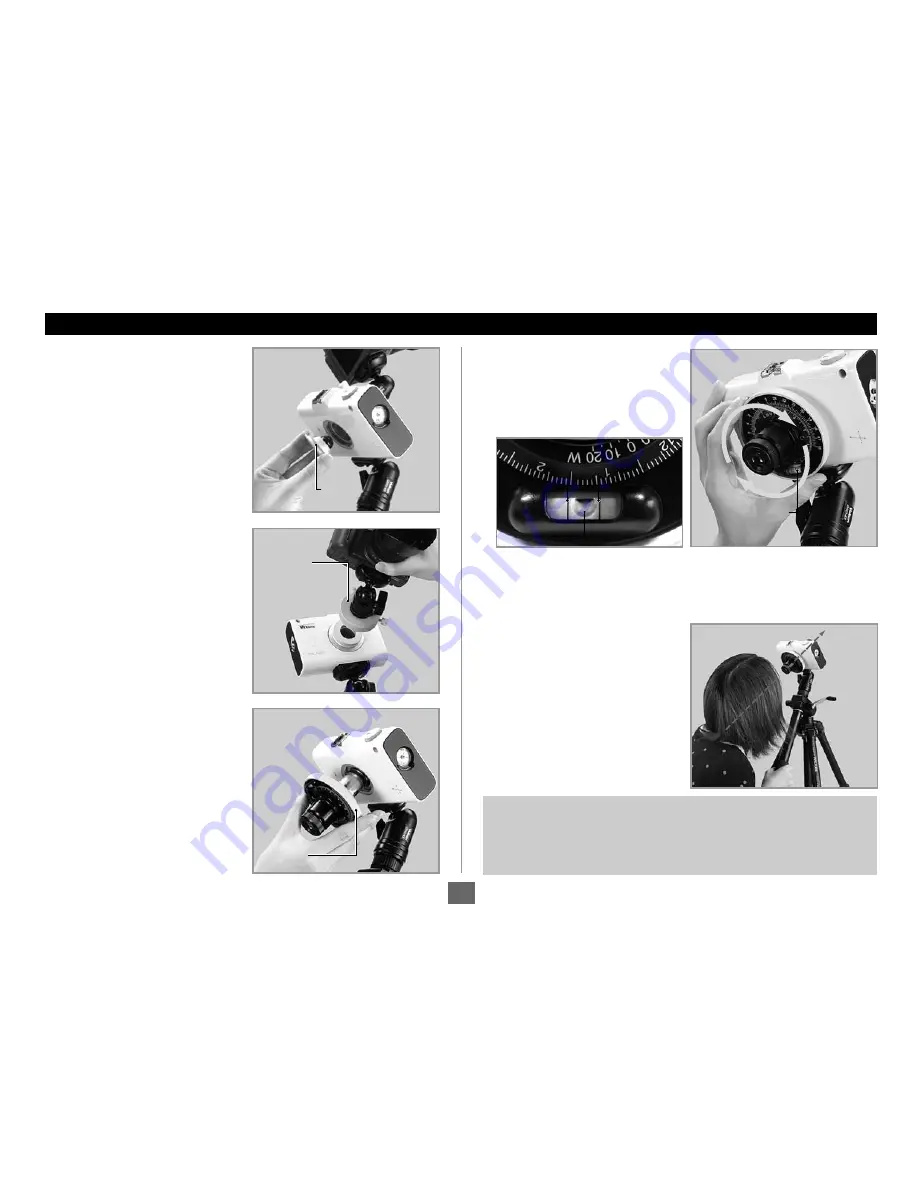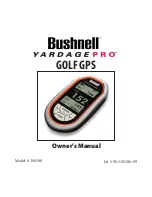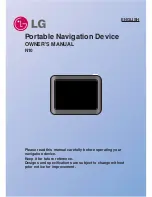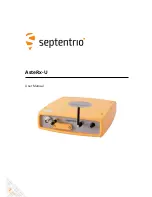
Bubble
Line marks
APPENDIX
Uncover the cap on the back
side of the Polarie and remove
the front camera mounting block.
Insert the polar axis scope into
the center opening hole of the
Polarie until snug.
Turn the time graduation circle
by holding the sides of the water
level so that you bring the
bubble to the middle of the level.
Look through the polar axis scope and confirm that Polaris can be
seen somewhere in the field of view. Readjust the orientation of
the Polarie by slowly loosening the pan head grip of your tripod so
that is set at a designated
position on the reticle in the field
of view. If the field of view is
too dim to see the reticle, point
a dim red flashlight to the front
of the polar axis scope to
slightly illuminate the reticle.
Caution:
Lock the pan head securely when you have completed polar
alignment. Be careful not to change the alignment.
Uncover the cap
Water level
Uncover the cap
Remove the camera
mounting block
and camera
Insert the polar
axis scope
Remove the camera
mounting block
and camera
Insert the polar
axis scope
Water level
Polaris
Polaris
5
8
6
7
25



































